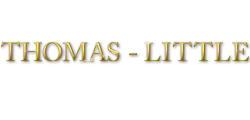FAQ: Funeral Services
-
What to bring to a meeting with your Funeral Director
- Social Security Number
- Date of Birth
- Place of birth (State, City and County)
- Parent's names (mother's maiden name)
- If female - deceased's maiden name
- Recent photo of your loved one
- Clothing, full set of under clothes, socks and shoes, pants, shirt, suit coat, dress, etc.
- Any makeup they wore
- Perfume or cologne
- Any insurance policies
- If deceased or spouse is a veteran DD-214 discharge papers
-
Will I, or another family member, need to write the obituary?
Mya Konieczny Garrett, who is a funeral director for our funeral homes, will write your loved ones obituary, unless told otherwise. During the arrangment confrence, Mya will be present to ask more detailed questions about your loved one, so that she may adequately tell their life story. All obituaries will be emailed and approved by the family before being posted. Feel free to look at some of our obituaries. Each is unique to the person and the perfect ending the story of their life.
-
How and when will I pay?
As you will discuss with one of our funeral directors at your arrangment confrence, our payment policy is due in full by the day of service, with payment by cash, check or credit card. You will recieve a General Price List, which is a book providing in detail all of our costs throughout the entire funeral home. This is a Pennsylvania State Law, that you are to recieve this at any funeral home you ever speak pricing with. You will also recieve an itemized statement, detailing everything decided and discussed during your arrangment confrence.
-
What "extra" fees or charges will I need to pay?
Some of the things you'll discuss with your funeral director involve purchases made from outside vendors, and you will be asked to pay for those items at the time of the arrangement conference. One of the most common is the fee charged by a newspaper to print your loved one's obituary, if chosing to place the obituary in the paper. Another cash advance charge could be for clergy or musician's fees, floral arrangements, and death certificates. Your funeral director will provide you with a detailed invoice for all cash advance items, which are items that we pay out ahead of time for you.
-
Does my loved one have to be embalmed prior to burial?
There are a few questions that you must ask yourself first. If you are planning to have a public visitation with your loved ones body present, then the answer is yes. According to the Pennsylvania State Law, the embalming process must take place if their is a public visitation held. Now if your plans are to have a private, immediate family only visitation, embalming is not required, but still may be recommended for preservation resons. Of course, if cremation (without viewing) is the route of final disposition you or your loved one has chosen, then emablming is not required.
-
What does it cost to bury a person in a cemetery?
First is the purchase price of the "right to use" the burial plot (unlike a real estate purchase, where you buy the land and all the structures on it; here you are only purchasing what is called the "interment rights" to the land). In addition, there are fees for the "opening" and "closing" of the gravesite; and any fees required to obtain the necessary permits and to maintain cemetery files and records. In addition, there's the fee for the use of any special equipment (such as a casket-lowering device); as well as the costs for any other services or items purchased. There's also the headstone or grave marker installation fee, and a one-time "perpetual care" (sometimes called "endowment care") fee paid to ensure your loved one's burial site is well-maintained.
-
How much will a casket cost?
Our casket pricing ranges anywhere from $1,495.00 to $12,897.00 (2023). If you are concerned about casket costs, speak with your funeral director who can advise you on the most appropriate casket for your situation and your budget.
-
What is "direct burial"?
When we make arrangements for the direct burial of an individual, we are expediting their interment. There will be no funeral, memorial service or celebration-of-life; instead, we provide the physical care of the deceased (perhaps embalming their body, but certainly dressing and casketing) and then escort the casket to the cemetery for immediate burial.
-
What is a Memorial Service?
Here's an interesting way to answer the question: a memorial service is not a funeral. Picture what you believe to be the traditional funeral, and then mentally tear up the image. Both ceremonies have structure; both are intended to bring community together in support and remembrance. But one is far more formal than the other; a memorial service is not lead by clergy, but guided by a celebrant or master-of-ceremonies. It provides all who attend the service an opportunity to participate on some level, not just to observe and reflect.
-
How does a memorial service differ from a celebration-of-life or funeral?
Visualize a memorial service as a mid-point on the spectrum of service format possibilities. On one end is the more formally-structured, clergy-led funeral service (often with three component parts: the visitation, funeral and a committal service held at the cemetery). At the other end is the celebration-of-life; an event where the life of the deceased–their passions, intellectual pursuits and personal accomplishments–are the focus of attention. A funeral isn't truly celebratory, where a celebration-of-life is all about celebration. A memorial service could be said to be a gentle mix of the two; but in all honesty, each memorial service is unique. Speak with your funeral professional for further insights.
-
What's involved in a cemetery burial?
If your loved one has not made previous arrangements for their burial, leaving you to pick the location of their interment, the first thing you'll need to do involves the selection of the cemetery and burial location within the grounds. You'll also choose the most suitable casket and burial vault, and provide us with the clothing you'd like your loved one to wear (and any 'special items' you'd like us to place in the casket) . Once payment is made, the date and time of interment is agreed upon. At that time, the cemetery grounds keepers will take care of the "opening" and "closing" of the grave and the proper placement of the casket in the burial vault.
-
What is a burial vault, and why do I need to buy one?
Today, modern cemetery grounds are well-groomed, with vast expanses of green grass. A burial vault protects this pristine view, ensuring there is no sign of burial plots "settling". Certainly the vault also protects the casket; but the primary role of a burial vault is to protect the beauty of the cemetery environment. Having a burial vault is the requirement of the cemetery, this may vary for each cemetery.
-
Do I have to buy a headstone or grave marker?
We will provide a temporary identification marker on your loved one's grave, but it is only intended as a placeholder until a permanent headstone or grave marker is set in place. Without one, your loved one's burial site will, when this temporary marker becomes illegible or is somehow removed, appear "unmarked".
Proudly Serving the Communities of McDonald, Oakdale, Imperial, Midway, Coraopolis, Sturgeon, Bulger, Burgettstown, Rennerdale, North Fayette Twp., South Fayette Twp.
Richard F. Thomas- Robert W. Little Funeral Service Inc.- McDonald
314 W. Lincoln Ave.
McDonald, PA 15057
Fax: (724) 926-2821
Email: patrick-kon@comcast.net
Supervisor: James Maksin
Thomas-Little Funeral Service Inc. and Crematory- Oakdale
5000 Noblestown Road
Oakdale, PA 15071
Fax: (724) 926-2821
Email: patrick-kon@comcast.net
Supervisor: Kate Cheman
Richard F. Thomas- Robert W. Little Funeral Service Inc.- Midway
106 St.John Street P.O. Box 103
Midway, PA 15060
Fax: (724) 926-2821
Email: patrick-kon@comcast.net
Supervisor: Phyllis Pensak-Naggy
Thomas-Little Funeral Service Inc. and Crematory- Imperial
305 Main Street
Imperial, PA 15126
Fax: (724) 926-2821
Email: patrick-kon@comcast.net
Supervisor: Patrick Konieczny

